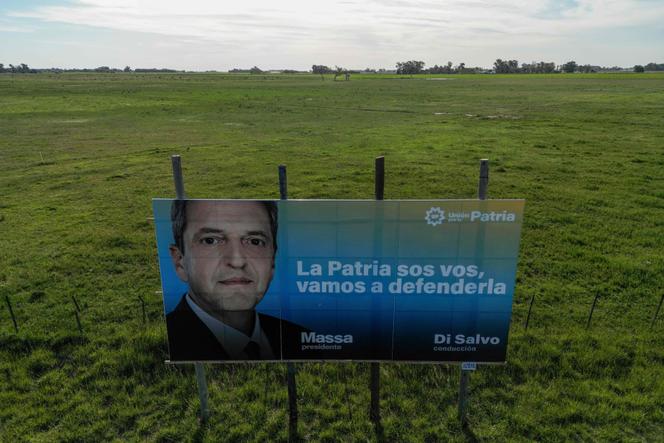


During the nearly one-and-a-half-hour Argentinian presidential debate on Sunday, November 12, the environment took up exactly 22 seconds of speaking time and was not included as a subject for discussion. The candidates in the running for the second round of voting (to take place on November 19), center-left Economy Minister Sergio Massa and far-right Javier Milei, presented their contrasting visions for the country in a closely watched duel, with polls showing them neck-and-neck. Like their campaign, the economy largely dominated the debate, as Argentina is facing suffocating inflation (143% year-on-year), a poverty rate hovering around 40% and a $45 billion (€41.6 billion) debt that the country must repay to the International Monetary Fund (IMF).
"Politicians maintain the idea that overcoming the crisis and achieving an energy transition are two antagonistic objectives, whereas they are complementary objectives and we need to act as quickly as possible," said Pia Marchegiani, deputy director of the Environment and Natural Resources Foundation (FARN). She referred to the latest work of the Intergovernmental Panel on Climate Change (IPCC), which calls for a peak in greenhouse gas emissions in 2025 at the latest in order to limit warming to 1.5°C. In Argentina, the world's 31st largest emitter of CO2, environmental issues have traditionally been absent from political debate. Although environmental activists and NGOs are making headway, the lack of political representation for the environment remains a major obstacle.
Yet the country is bearing the full brunt of climate disruption. From 2019 to 2023, it experienced a historic drought, also fueled by the La Niña weather phenomenon, which devastated the country's economy as it is highly dependent on the agricultural sector. With soybeans, wheat and corn unfit for harvest or never sown, the loss of export earnings is expected to rise to $20 billion in 2023, equivalent to 3% of gross domestic product (GDP). Argentina also experienced the hottest summer in its history this year, with temperatures exceeding 40°C on several occasions, in Buenos Aires in particular. The record laid bare the shortcomings of infrastructure in the face of heatwaves, particularly in schools.
Despite the harshness of the climatic reality endured by the Argentine population, populist outsider Milei is openly climate-skeptical. "In the history of the Earth, there is a cycle of temperatures," he argued during an October 8 presidential debate, denying the impact of human activity on the high temperatures recorded in the country. He also asserted: "We are not going to adhere to the 2030 Agenda [referring to the UN's 2015 development framework, which sets out 17 sustainable development goals to be achieved by 2030]. We do not adhere to cultural Marxism. We do not adhere to decadence."
You have 55% of this article left to read. The rest is for subscribers only.
